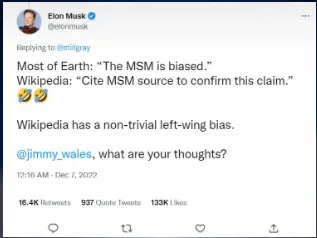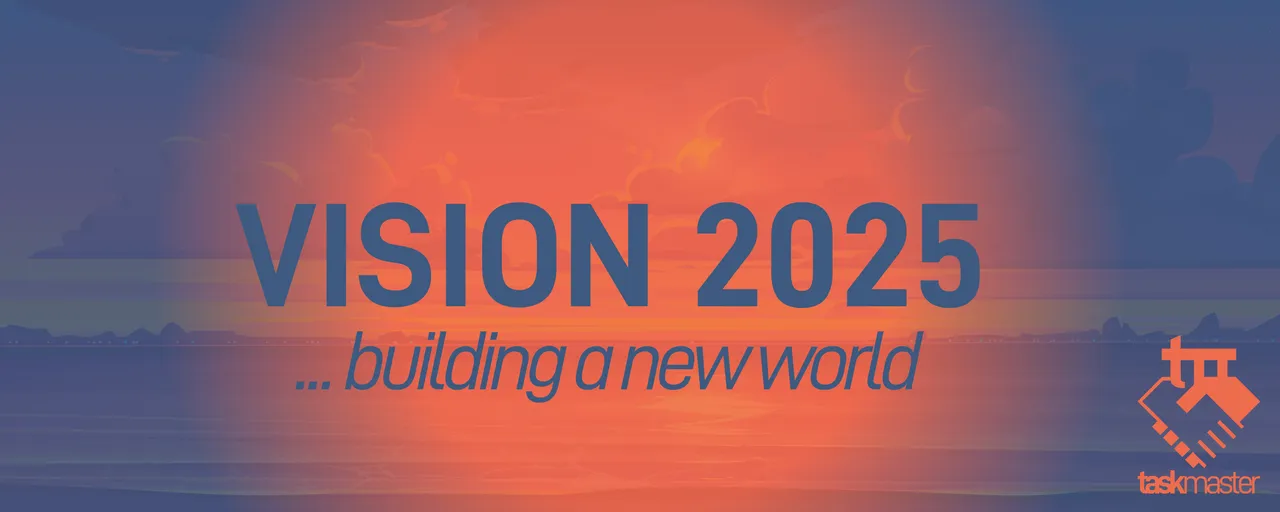Did you see the online speculation about Elon Musk and Wikipedia?
Evidently Elon made reference to it while tagging that account. This led to speculation that Musk is looking to buy Wikipedia.
Here is what Musk referred to:

We naturally get the reply from Wikipedia.

For the sake of this article, Wikipedia's bias (or non-bias) is not relevant. Instead, what we want to focus upon is the changing dynamics of data storage due to technology.
Hive Can Make Wikipedia Worthless
Hive is a decentralized text database. This means that possibilities previously not imagined are on the table. It is something that could be a major threat to an organization such as Wikipedia.
The genius of Hive is that block producers are incentivized to provide the infrastructure to the ecosystem. With Wikipedia, the onus is upon them to provide all the hardware required to house the database. Of course, this means they are responsible for the cost.
With Hive, we have a system in place whereby anyone can post data to the blockchain. Also, as we mentioned in the past, unlike Bitcoin, this is more than just distributed ledger technology. We are dealing with a database of text.
This means that someone could actually take Wikipedia, remove the images, and post it to Hive. Certainly it might take a while and would expand the size of the database yet it is possible. In fact, since Wikipedia is out there, someone could do this anonymously by opening up an account and having enough resource credits to keep transacting..
We also can see the longer path whereby a group of people could literally createfrom scratch the "new Wikipedia" on Hive. This is the value of a permissionless text blockchain.
Imagine if Musk bought Wikipedia only to find out that 6 months or a year later someone recreated it in a decentralized manner.
Here we see the epitome of the difference between centralization and decentralization.
Hive Makes Information Free
There is a saying that "information yearns to be free". When it is, it spreads like wildfire.
We see a lot of business models that include the paying for information. This makes sense since that is the traditional way of monetizing. Whether it is through a subscription like a newspaper or advertising like the broadcast news, someone was always footing the bill.
Through the creation of blockchain, and Hive in particular, we see how other options open. With the use of tokenization, incentivization is placed where it can garner the necessary resources. This can be for infrastructure, individual activity, or any other services required.
To me, this really espouses the basis of Web 3.0.
Hive as a decentralized database is still an unappreciated feature. This is a step forward to make information free. We know there are thousands posting content on Hive each day. This is available for anyone to consume. From this perspective, we are seeing a massive step forward.
Also, unlike Twitter and Facebook, we are not the product. Hive operates in a transparent fashion where nobody owns the data. Anything posted on Twitter is resident on its servers. With Hive, whatever front end is used, the data ends up on the blockchain.
As we can see with Wikipedia, this disrupts their entire business model. Something that was somewhat viable in the Web 2.0 era is suddenly obsolete.
Another factor to consider is that, whether left leading or not, Wikipedia is a valuable resource for many things. There is a lot of information available, much of it without any political bias. If they cannot afford operations, it would be a setback to lose so much information. Here is where their business model fails.
With Hive, the blockchain is pumping out rewards every 3 seconds. Each new block pays the validator, compensating them for their costs. This makes the data storage mechanism available to anyone who has enough Hive Power to engage with the blockchain.
This is a solution that cryptocurrency brings to the table. We hear a lot about finance but few discuss the shift in the basic architecture of the Internet.
Data storage is undergoing a change. What happens when we have another decentralized node system build on top of Hive? Then we have another set of node operators incentivized to provide the infrastructure. In turn, that means the potential of even more data storage.
Rinse and repeat.
This is the threat that Hive possesses to anything that is housing data. Due to a change in the business model, we can see how these companies are at a disadvantage. It is a situation that will be exposed as more sidechains are tied to Hive.
If you found this article informative, please give an upvote and rehive.

gif by @doze

logo by @st8z